
Associate Editors
At PCD, each manuscript determined to be appropriate for peer review undergoes a rigorous review by one of our associate editors. These volunteers are independent public health experts who bring a wealth of training, experience, and expertise to the journal. They select manuscripts on the basis of their alignment with the journal’s vision and mission and their scientific and programmatic contributions to advancing the field of chronic disease prevention and control.
Arsham Alamian, PhD, MSc
Associate Dean for Health Studies
Associate Professor
University of Miami
School of Nursing and Health Studies
Coral Gables, Florida
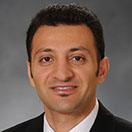
Dr Alamian is associate dean for health studies and an associate professor at University of Miami School of Nursing and Health Studies (SONHS). As associate dean, Dr Alamian oversees the public health and health sciences programs of the SONHS. His research interests include cluster-risk and theoretical modeling of risk behaviors and risk factors for chronic disease including metabolic syndrome, diabetes, and cardiovascular disease. He has been investigator on multiple National Institutes of Health and state grants on pediatric obesity, metabolic syndrome, and biomarkers for chronic liver disease. Dr Alamian received a doctoral degree in public health, with specialization in epidemiology, from the University of Montreal School of Public Health. He completed a fellowship in public health through a Canadian Institutes of Health Research fellowship program at McGill University, and has a master of science degree in pharmacy, with specialization in pharmacoepidemiology, from Laval University.
Appointment Term: 2019–2026
Semra Aytur, PhD, MPH
Associate Professor
Department of Health Management and Policy
University of New Hampshire
Durham, New Hampshire
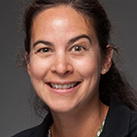
Dr Aytur is an epidemiologist whose research focuses on relationships between health behavior, chronic disease prevention, and environmental, social, and policy factors. Prior to joining the University of New Hampshire, Dr Aytur completed a PhD and postdoctoral fellowship in cardiovascular epidemiology at the University of North Carolina, Chapel Hill, and an MPH at Boston University. She is particularly interested in health disparities and in relationships between population health and access to health-promoting resources. Her methodological focus areas include generalized linear mixed models, mediation analysis, complex systems models, health impact assessment, and participatory action research methods such as Photovoice and community mapping.
Appointment Term: 2019–2025
Ronny A. Bell, PhD, MS
Fred Eshelman Professor and Chair
Division of Pharmaceutical Outcomes and Policy
Eshelman School of Pharmacy
University of North Carolina at Chapel Hill
Chapel Hill, North Carolina
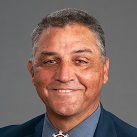
Dr Bell is the Fred Eshelman Professor and Chair of the Division of Pharmaceutical Outcomes and Policy at the Eshelman School of Pharmacy at the University of North Carolina at Chapel Hill. He is an enrolled member of the Lumbee tribe of eastern North Carolina, and he currently serves as Chair of the North Carolina American Indian Health Board. Dr Bell is also a member of the North Carolina Advisory Committee on Cancer Coordination and Control (NC ACCCC) and co-chairs the NC ACCCC Prevention Subcommittee. He co-leads the Southeastern American Indian Cancer Health Equity Partnership (SAICEP), a collaboration between the Community Outreach and Engagement programs at the 3 NCI-designated Comprehensive Cancer Centers in North Carolina. In 2019, he was appointed as Scientific Co-Editor for the North Carolina Medical Journal. Dr Bell received his undergraduate degree in Public Health Nutrition from the University of North Carolina at Chapel Hill School of Public Health (1985) and his master’s (1988) and doctorate (1993) in Foods and Nutrition from the University of North Carolina at Greensboro. Dr Bell completed a postdoctoral fellowship in Gerontology and a master’s in Epidemiology (1996) from the Wake Forest School of Medicine.
Appointment Term: 2020–2025
Jeane Bosch, PhD, MPH
Clinical Psychologist, Tech into Care Team
Veterans Affairs (VA) Palo Alto Health Care System
National Center for PTSD
Menlo Park, California

Dr Bosch is a clinical psychologist in the Dissemination and Training Division of the National Center for PTSD. She is an implementation facilitator and evaluation lead for the Tech into Care program. Her primary focus is to improve the care provided to veterans by expanding the reach of VA mental health apps. Dr Bosch trains VA staff and community members on integrating these apps into care and provides support to individuals, programs, or facilities that are implementing the practice. She received a master of public health degree, with an emphasis on community health education, from San Francisco State University and a doctorate in clinical psychology from Saint Louis University. She was an advanced research fellow in women’s health at the San Diego VA Healthcare System/University of California, San Diego.
Appointment Term: 2023–2026
Tammy Calise, DrPH, MEd
Principal Research Associate, Westat
Boston, Massachusetts

Dr Calise is a Principal Research Associate at Westat, where she leads the evaluation for the NIH Community Engagement Alliance (CEAL) Regional Teams initiative and serves as a liaison to numerous academic–community partnerships. With over 25 years of experience in public health, specializing in research and evaluation, she is dedicated to addressing social determinants of health and health inequities. Dr Calise has been at the forefront of evolving research and evaluation practices to better address these issues.
She is committed to elevating local voices and ensuring community engagement in all aspects of evaluation and research, while also mentoring others in this critical work. Dr Calise serves as an Advisor for the Women in Leadership Program at the University of Vermont’s Grossman School of Business and teaches a master’s level evaluation course at the Harvard T.H. Chan School of Public Health. She holds a DrPH in social and behavioral sciences from Boston University and an MEd from the University of Missouri.
Appointment Term: 2019–2025
Lucas Carr, PhD
Associate Professor
University of Iowa
Founding Director
University of Iowa Community Health Collaborative
Iowa City, Iowa
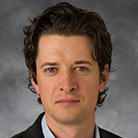
Dr Lucas Carr is an associate professor in the Department of Health and Human Physiology at the University of Iowa. Dr Carr’s research focuses on understanding the major determinants of lifestyle health behaviors and designing and evaluating multilevel, lifestyle behavior-change interventions tailored to populations at-risk of adverse outcomes of poor lifestyle choices. He has extensive expertise in the areas of physical activity and sedentary behaviors. His most recent work focused on developing and testing system-level approaches designed to integrate lifestyle behaviors into clinical care settings. Dr Carr received a doctorate in physiology from the University of Wyoming and completed a National Institutes of Health–sponsored postdoctoral fellowship in behavioral medicine at Brown University.
Appointment Term: 2023–2026
Sajal Chattopadhyay, PhD
Economic Advisor, Community Guide Program
Office of Scientific Evidence and Recommendations
Office of Science
Centers for Disease Control and Prevention
Atlanta, Georgia

Dr Chattopadhyay is the principal economic advisor for the Community Guide Program at the Office of Scientific Evidence and Recommendations, Office of Science, CDC. He directs the Community Guide’s systematic economic reviews. He previously served as a senior economist at CDC’s Division of Cancer Prevention and Control and as the chief of the Prevention Effectiveness Branch in the Epidemiology Program Office at CDC. Before joining CDC, he was an assistant professor of economics at the University of Connecticut. Dr Chattopadhyay is a founding member of the International Health Economics Association. He coordinated the collaborative work between CDC and the Institute of Medicine on re-estimating health benefits of federal regulations with various health-related quality-of-life measures and later served as an economic advisor for A Purchaser’s Guide to Clinical Preventive Services. Dr Chattopadhyay received a doctorate in economics with a specialization in health economics from the University of Connecticut.
Appointment Term: 2023–2026
Benjamin W. Chrisinger, PhD, MUEP
Associate Professor
Department of Social Policy and Intervention
University of Oxford
Oxford, United Kingdom

Dr Chrisinger is associate professor of evidence-based policy evaluation in the Department of Social Policy and Intervention at the University of Oxford, Oxford, England. He conducts interdisciplinary research on the relationships between place and health and uses quantitative and qualitative methods to explore how individuals navigate built environments and how place-based policies influence health and built environment outcomes. He is also involved in various citizen science initiatives. Dr Chrisinger completed his doctoral degree in city and regional planning at the University of Pennsylvania and a postdoctoral fellowship in cardiovascular disease prevention at the Stanford Prevention Research Center.
Appointment Term: 2022–2025
Kar-Hai Chu, PhD, MS
Associate Professor
School of Public Health
University of Pittsburgh
Pittsburgh, Pennsylvania

Dr Chu is an associate professor at the University of Pittsburgh and is co-director of the university’s Center for Social Dynamics and Community Health. He has a diverse background in computer science, social network analysis, online social media, and cancer prevention. Dr Chu is an NIH-funded researcher with a focus on leveraging innovative technologies to study tobacco control. His research projects include exploring the presence of tobacco companies on social media, the diffusion of misinformation, network-based interventions, and applying agent-based modeling to inform health policies. Dr Chu received a Master of Science degree in computer science from Columbia University, a Master of Science in Clinical Research from the University of Pittsburgh, and a doctoral degree in communication and information sciences from the University of Hawaii.
Appointment Term: 2022–2025
Top
Sarah Conderino, MPH
Data Scientist
Department of Population Health
NYU Grossman School of Medicine
New York, New York

Ms Conderino is a DrPH candidate at Columbia University and a researcher in the Department of Population Health at New York University’s Grossman School of Medicine. She received an MPH in chronic disease epidemiology from Yale University and completed the Centers for Disease Control and Prevention/Council of State and Territorial Epidemiologist’s applied epidemiology fellowship at the New York City Department of Health and Mental Hygiene. Her research interests include innovations in chronic disease and injury surveillance.
Appointment Term: 2021–2025
Kenneth Cummings, PhD, MPH
Professor
Department of Psychiatry & Behavioral Sciences
Medical University of South Carolina
Charleston, South Carolina

Dr Cummings is a professor in the Department of Psychiatry & Behavioral Sciences and member of the Hollings Cancer Center’s Cancer Control Program, where he co-leads the tobacco research program. He is widely recognized for his research on smoking behavior, product marketing, consumer risk perceptions, and the influence of cigarette design on smoking behavior. Dr Cummings received a master of public health degree and a doctorate, with specialization in health behavior and health education from the University of Michigan School of Public Health.
Appointment Term: 2023–2026
Patricia C. Da Rosa, DDS, PhD, MSc
Public Health Researcher
Technical University of Munich
TUM School of Medicine and Health
Department Health and Sport Sciences
Chairs of Preventive Pediatrics and Social Determinants of Health
Munich, Germany

Dr Patricia Da Rosa holds a dental degree (2004) from the Pontifical Catholic University of Rio Grande do Sul, Brazil, and a specialization in Public Health and Primary Health Care (2007) from the Public Health School of Rio Grande do Sul. She earned her master’s degree (2010) in the field of Oral Health Epidemiology from the Epidemiology and Biostatistics Unit at INRS Institut Armand Frappier, Canada, and a PhD in Biological Science (2023) from South Dakota State University, USA.
At South Dakota State University, Dr Da Rosa worked for over eight years at the Population Health Evaluation Center and the College of Nursing, contributing to multiple research projects and supporting the Disease Prevention and Health Promotion Department at the South Dakota Department of Health. In 2019, she received the Excellence in Scholarly Activity Award for Professional Staff at South Dakota State University. She also had a brief tenure with the CDC Foundation in 2023.
Since April 2024, Dr Da Rosa has been a public health researcher at the Technical University of Munich (TUM), contributing to the Chairs of Preventive Pediatrics and Social Determinants of Health. Her research interests include oral health epidemiology, social determinants of health, and the impacts of adverse childhood experiences on health outcomes and behaviors.
Appointment Term: 2019–2026
Jason A. Douglas, PhD, MA
Assistant Professor
Department of Health, Society, & Behavior
Program in Public Health
Center for Environmental Health Disparities Research
University of California, Irvine

Leveraging community-based participatory action research, Dr Douglas works with community-based organizations and residents in Black and historically marginalized communities to investigate and redress environmental health disparities. His work ranges from structured observation of neighborhood-level assets and challenges that may encourage or encumber health-promoting behaviors to large-scale geospatial examinations of health and place. His current research examines air pollution–- and urban heat–-related health disparities, legal drug retail (e.g., tobacco shops, liquor stores) siting inequities, inequitable access to recreational spaces and physical activity opportunities, and community organizing practices for advancing health and well-being. Supported by state and federal funding, Douglas has developed and adapted innovative participatory methodologies (—e.g., structured observation, and neighborhood mapping)—for examining novel public health challenges.
Appointment Term: 2022-2025
Mike Dolan Fliss, PhD, MPS, MSW
Epidemiology Research Scientist
UNC-CH Injury Prevention Research Center
Chapel Hill, North Carolina

Mike Dolan Fliss, PhD, MPS, MSW, is a public health epidemiologist and data scientist, dually affiliated with the UNC Injury Prevention Research Center and the NC Division of Public Health to help bring research to practice. His current projects include opioid overdose (build the state’s dashboard), the tobacco/alcohol retail environment, child maltreatment, industrial animal farms, racial disparities in policing, and public health informatics. He has a PhD in Epidemiology (2019) and master’s degrees in social work (2009) and public health informatics (2018). He teaches a course on R for Public Health Epidemiology at UNC with content publicly available online.
Appointment Term: 2022-2025
Lucine Francis, PhD, RN
Assistant Professor
Johns Hopkins University School of Nursing
Baltimore, Maryland

Dr Francis is an assistant professor at the Johns Hopkins School of Nursing and a steering committee faculty member of the Johns Hopkins Consortium for School-Based Health Solutions. Dr Francis’ research focuses on health promotion and innovation in child-serving organizations, centering on childhood obesity prevention, childhood nutrition and active play, and school success. She uses diverse methodologic approaches, including mixed methods, epidemiology, and community-based participatory methods, to inform the development, adaptation, implementation, and evaluation of programs for children and families to support the primary prevention of diet-related chronic diseases. Her work also aims to illuminate the role of and address the adverse social and structural determinants of child health and early learning.
Dr Francis has a bachelor of arts degree in neuroscience from Smith College and a bachelor of science degree and doctorate in nursing from Johns Hopkins University. Dr Francis obtained additional scientific training in mental health, parenting, and parent engagement as the Morton K. and Jane Blaustein postdoctoral fellow in mental health and psychiatric nursing at Johns Hopkins University.
Appointment Term: 2023-2026
Janessa Graves, PhD, MPH
Associate Professor
College of Nursing
Washington State University
Pullman, Washington

Dr Graves is a health services researcher with expertise in rural health, occupational health services, and injury research. Prior to joining Washington State University, Dr Graves completed a postdoctoral fellowship at the Harborview Injury Prevention and Research Center. She earned a doctorate and master of public health degree at the University of Washington School of Public Health. Her research centers on engaging rural communities to increase access to health care services, measuring quality of care in occupational health services, and describing the epidemiology of drug exposures. Her methodologic focus areas include analysis of insurance claims and administrative data, cost analyses, community health needs assessments, and community-engaged research methods like group concept mapping.
Appointment Term: 2023-2026
Z. Tuba Suzer Gurtekin, PhD, MS, MBA
Assistant Research Scientist
University of Michigan Institute for Social Research
Ann Arbor, Michigan

Z. Tuba Suzer Gurtekin is an assistant research scientist at the University of Michigan’s Institute for Social Research. Her research interest is to investigate the inference properties of nonprobability samples based on a comprehensive framework and to propose new inference methods that incorporate the realities of the nonprobability samples. In particular, her investigations include improving error properties of the scientific data collection methods in the face of increasing nonresponse rates and survey data collection costs. Her research includes managing monthly surveys of consumer attitudes, expectations, and behavior and developing estimation methods that can improve the reliability of the low response rate probability sample surveys. Her published research focuses on methods to quantify nonresponse and measurement survey errors in probability and nonprobability sample surveys and mixed-mode survey design and inference. Her research experience has included development of alternative sample, methodology and questionnaire designs, data collection and analysis methods for a general population in parallel survey modes. She also teaches Survey Sampling for Clinical Research at the University of Michigan’s Clinical Research Design and Statistical Analysis program. Dr Gurtekin received a master’s degree and doctoral degree in survey methodology from the University of Michigan.
Appointment Term: 2021-2025
Jeanette Gustat, PhD, MPH
Associate Professor
Department of Epidemiology, Tulane Prevention Research Center
School of Public Health and Tropical Medicine
Tulane University
New Orleans, Louisiana

Dr Gustat is an epidemiologist whose research focuses on the social and environmental determinants of physical activity and health. She is a co-investigator of the Tulane Prevention Research Center and the Bogalusa Heart Study. She is a member of the Physical Activity Policy Research Network. Her interests include physical activity, obesity, food access, psychosocial factors, urban blight, and cognitive function, and how these factors play a role in chronic disease outcomes. Dr Gustat received a BA from Valparaiso University and an MPH and PhD from Tulane University.
Appointment Term: 2019-2026
Daikwon Han, PhD
Associate Professor
Department of Epidemiology and Biostatistics
Texas A&M University
College Station, Texas

Dr Han is an associate professor at Texas A&M School of Public Health. With training in epidemiology and geographic information system sciences, he researches environmental health, exposure science, spatial epidemiology, and population health studies. He has conducted extensive research in the investigation of the etiology of chronic diseases based on broad-based approaches, especially focusing on incorporating geospatial and statistical methods into epidemiologic research of environmental causes. Dr Han has a PhD in geography/spatial epidemiology from the University at Buffalo–State University of New York.
Appointment Term: 2021–2025
Brian Hendricks, PhD, MSci
Assistant Professor of Epidemiology
School of Public Health
West Virginia University
Morgantown, West Virginia

Dr Hendricks is an assistant professor of epidemiology at West Virginia University, and director of the WVU Spatial Epidemiology and Statistics Lab. He also provides expertise as a senior policy analyst for the Executive Office of the President of the United States, Office of National Drug Control Policy, as a senior policy analyst, and as a spatial epidemiologist for the West Virginia Clinical and Translational Sciences Institute. Dr Hendricks has a deep commitment to rural health and health disparities research. He is an elected member of the WV Balance of State Continuum of Care, overseeing programs for WV residents experiencing homelessness, and of the National Institutes of Health Researching COVID to Enhance Recovery (RECOVER) study. His specific research interests are in use of spatial statistical methods to describe the geographic context of infectious diseases, substance use disorder, and health disparities.
Appointment Term: 2023-2026
Natalie D. Hernandez, PhD, MPH
Assistant Professor, Department of Community Health and Preventive Medicine
Executive Director, Center for Maternal Health Equity
Morehouse School of Medicine
Atlanta, Georgia

Natalie D. Hernandez, PhD, MPH, is an assistant professor in the Department of Community Health and Preventive Medicine and the Executive Director of the Center for Maternal Health Equity at Morehouse School of Medicine. Dr Hernandez received her Master of Public Health from Emory University’s Rollins School of Public Health and a Bachelor of Arts in anthropology from Stony Brook University in New York. She earned her PhD in public health as well as a graduate certificate in interdisciplinary women’s health from the University of South Florida. She has more than 16 years of experience in developing community partnerships and implementing population health that engages diverse stakeholder groups. To advance science toward the elimination of women’s health inequities, Dr Hernandez has obtained extramural funding to develop multiple lines of research in the context of maternal and women’s health, specifically with Black and Latinx populations. The research approach in these local and nationally funded initiatives encompassed utilization of CBPR approaches, and takes a multi-sectoral and multi-level translational, health disparities research approach to understanding the myriad causes of women’s health inequities.
Appointment Term: 2022-2025
Dylan Jester, PhD, MPH
Biostatistician
Women’s Operational and Military Exposure Network
War Related Illness and Injury Study Center
Veterans Affairs (VA) Palo Alto Health Care System
Palo Alto, California

Dr Jester is a biostatistician with the Women’s Operational Military Exposure Network (WOMEN) and War Related Illness and Injury Study Center (WRIISC) at the VA Palo Alto Health Care System. His research is focused on how social determinants of health and structural inequities affect cognition and mental health in older adults, with an emphasis on Alzheimer disease and related dementias. Other facets of his work include the examination of staffing deficits in nursing homes, quality-of-care disparities in long-term care settings, and adverse health outcomes among nursing home residents exposed to natural disasters. Dr Jester completed a doctorate in aging studies and master of public health in epidemiology at the University of South Florida and a T32 postdoctoral fellowship in geriatric mental health at the University of California, San Diego, School of Medicine. Although he was formally trained as a gerontologist and social epidemiologist, Dr Jester’s background in statistics draws from biostatistics, computer science, econometrics, health services research, and psychology.
Appointment Term: 2023-2026
Nan Jiang, PhD
Assistant Professor
Department of Population Health
NYU Grossman School of Medicine
New York, New York

Dr Jiang is an Assistant Professor in the Department of Population Health at New York University (NYU) Grossman School of Medicine. Her research focuses on mobile technology-mediated smoking cessation interventions with a particular focus on racial/ethnic minority groups, and multilevel determinants of alternative tobacco use and cigarette smoking. She received a BS in nursing from Peking Union Medical College in China, a MS and PhD in health behavior from Indiana University Bloomington. She completed postdoctoral training in the Center for Tobacco Control Research and Education at the University of California San Francisco.
Appointment Term: 2022-2025
Danielle King, PhD, RDN, CDN
Assistant Professor
Health, Nutrition, and Dietetics Department
Buffalo State University
The State University of New York (SUNY)
Buffalo, New York

Dr Danielle King is a registered dietitian nutritionist (RDN) who has a background investigating health behavior change for dietary intake and physical activity behaviors. Dr King obtained her doctorate from The Ohio State University in interdisciplinary nutrition after earning her master’s degree in dietetics from D’Youville University. Her dissertation focused on understanding the underlying mechanisms of health behavior change for weight loss in adults with prediabetes. In her current role as assistant professor in the Health, Nutrition, and Dietetics Department at Buffalo State University, The State University of New York (SUNY), Dr King teaches courses related to weight management, diabetes, and advanced nutrition counseling for behavior change in the graduate dietetics program. Her research interests continue to encompass health behavior change related to lifestyle factors, such as dietary intake and engagement in physical activity.
Appointment Term: 2024-2027
Marynia Kolak, PhD, MS, MFA
Associate Director of health Informatics
Center for Spatial Data Science
University of Chicago
Chicago, Illinois

Dr Kolak received her PhD from Arizona State University, Tempe, and her MS from Johns Hopkins University, Baltimore. As a health geographer, she uses spatial epidemiology and an exploratory data analytic approach to investigate issues of equity across space and time. Her research centers on how “place” influences health outcomes in different ways for different people, from opioid risk environments to chronic disease clusters with a focus on the measurement of neighborhood constructs, investigating contextual, neighborhood effects on health outcomes, and integrating an explicit spatial perspective in research design to account for complex phenomena and neighborhood structures. Dr Kolak is committee chair of the Chicago Public Health GIS Network, and founder and member of the Chicagoland Air Quality Working Group.
Appointment Term: 2022-2025
Jessica A. Kulak, PhD, MPH, MS
Clinical Assistant Professor
Department of Community Health and Health Behavior
School of Public Health and Health Professions
University at Buffalo, State University of New York
Buffalo, New York

Dr Kulak is a clinical assistant professor in the Department of Community Health and Health Behavior at the University at Buffalo. Her research focuses on substance use, particularly nicotine and cannabis. Dr Kulak’s research examines risk and resiliency factors among vulnerable populations, including youth and young adults, military services members and their spouses, and the aging population. Dr Kulak received a Master of Science degree in school and community mental health counseling from the University of Rochester, and Master of Public Health and doctoral degrees in Community Health and Health Behavior at the University at Buffalo. As a postdoctoral fellow, Dr Kulak completed a fellowship in addictions research at the Jacobs School of Medicine and Biomedical Sciences at the University at Buffalo.
Appointment Term: 2022-2025
Amos Lal, MBBS, MD
Assistant Professor
Department of Medicine, Division of Pulmonary and Critical Care Medicine
Mayo Clinic College of Medicine and Science
Rochester, Minnesota
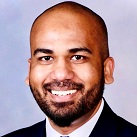
Dr Lal is a Pulmonary and Critical Care physician whose clinical research focuses on bioinformatics, epidemiology, and observational studies related to COVID-19 disease and clinical trials in the intensive care unit. In addition to this, he is closely engaged with the Society of Critical Care Medicine Discovery Network, Viral Infection, and Respiratory Illness Universal Study (VIRUS) International Registry. His clinical expertise involves Internal Medicine, Pulmonary and Critical Care Medicine, and formal training with a master’s degree in clinical and translational research with a focus on creating a digital twin platform for critically ill patients. His other clinical and research interests include infections in ICU, Quality improvement, Sepsis, and the use of artificial intelligence in the intensive care setting. His outreach effort includes improvement in healthcare delivery in the underserved areas internationally by providing clinical care and teaching in developing countries via in-person and digital format. Dr Lal is an invited Fellow of the American College of Physicians, a member of the Society of Critical Care Medicine, American Thoracic Society, and American College of Chest Physicians.
Appointment Term: 2022-2025
Lihua Li, PhD
Associate Professor, Institute for Healthcare Delivery Science
Department of Population Health Science and Policy
Department of Geriatrics and Palliative Medicine
Icahn School of Medicine at Mount Sinai
New York, New York

Dr Li is an associate professor in the Department of Population Health Science and Policy and the Department of Geriatrics and Palliative Medicine, Icahn School of Medicine at Mount Sinai. She is an experienced biostatistician and health services researcher, with a focus on the development and application of innovative statistical and economic methods to study chronic diseases. Dr Li has experience in panel data analysis, time series, and health economics. Her current research centers on patient health outcomes, health care utilization, and associated health care costs, such as assessing the impact of health policies and health care initiatives, identifying key determinants of end-of-life health care costs, and examining patterns of health care spending among patients with high levels of health care needs and costs.
Appointment Term: 2023-2027
Zhen-Qiang Ma, MD, MPH, MS
Division Director
Division of Community Epidemiology
Bureau of Epidemiology
Pennsylvania Department of Health
Harrisburg, Pennsylvania
Adjunct Assistant Professor
Graduate School of Public Health
University of Pittsburgh
Pittsburgh, Pennsylvania

Dr Ma has extensive experience in epidemiological investigations at local and state health departments. He is a senior epidemiologist at the Pennsylvania Department of Health and the division director of community epidemiology. In this role, he oversees maternal–child health, childhood lead exposure, opioid overdose, and chronic disease prevention program epidemiologic support. He obtained his medical degree from Nanjing Medical University and has master’s degrees in public health and applied statistics. He is also an adjunct assistant professor of epidemiology in the Graduate School of Public Health at the University of Pittsburgh. His research interests are to link various existing data sources — vital records, cancer registry, Behavioral Risk Factor Surveillance System, and hospital discharge data using personal and geographical identifiers — and use these linked data to design and evaluate public health programs. He is also interested in using appropriate epidemiological study design and statistical methods applied in public health practice.
Appointment Term: 2021-2025
Amyn A. Malik, PhD, MBBS, MPH
Assistant Professor
Peter O’Donnell Jr. School of Public Health
UT Southwestern Medical Center
Dallas, Texas

Dr Malik is an assistant professor of epidemiology and an infectious disease epidemiologist at O’Donnell School of Public Health, UT Southwestern Medical Center. He has more than a decade of experience in running global health delivery programs and conducting epidemiological research. Dr Malik’s research portfolio and interests include work on COVID-19, child health, vaccination, drug-susceptible and drug-resistant tuberculosis, pediatric tuberculosis, contact tracing, preventive treatment for tuberculosis, and behavioral and social drivers of vaccination and other health-related behaviors. Dr Malik received his medical degree from the Aga Khan University in Pakistan, a master of public health degree from Johns Hopkins Bloomberg School of Public Health, and a doctoral degree in epidemiology from Emory University.
Appointment Term: 2022-2025
Lohuwa Mamudu, PhD
Assistant Professor
Department of Public Health
California State University, Fullerton
Fullerton, California

Dr Lohuwa Mamudu is an assistant professor in the Department of Public Health at California State University, Fullerton (CSUF). He is a statistician, data analyst, data scientist, epidemiologist, and research consultant. His data-driven and interdisciplinary research focuses on statistical and analytical modeling and applications of qualitative and quantitative statistical and machine-learning methods and algorithms. He collaborates with the National Institutes of Health and Tennessee Cancer Registry as a freelance data analyst and researcher, working on cancer disease outcomes and disparities (breast, lung cancer, and others), infectious disease, chronic disease, and immigration health disparities (depression, anxiety, and psychological distress) in the US. He a co-investigator of the multiyear National Institutes of Health–funded Neurocognitive Aging and Analytics Research Education program at CSUF. He is also a statistical fellow at the Undergraduate Research Opportunity Center at CSUF and a mentor and advisor in several mentorship and advisory programs. He organizes, facilitates, and instructs in academic and research workshops. His long-term research goal and interest focus on big data analytics and artificial intelligence in public health research.
Appointment Term: 2023-2026
Top
Namoonga M. Mantina, MSPH, MBA
Graduate Student
Department of Health Promotion Sciences
University of Arizona
Tucson, Arizona

Ms. Namoonga Mantina is a doctoral student in the Health Promotions Sciences program at the Mel and Enid Zuckerman College of Public Health at the University of Arizona in Tucson. She completed both a master’s degree in business administration and a master’s degree in public health from the University of Arizona. Ms. Mantina’s research interests include HPV vaccination, cervical cancer prevention, socio-ecologic influences on health behavior, and health equity among racial and ethnic populations. With her public health training and business acumen, Ms. Mantina aspires to develop and facilitate sustainable strategies that champion health equity solutions for underserved communities in both local and global settings.
Appointment Term: 2024-2027
Kevin Matthews, PhD, MS
Health Geographer
National Center for Chronic Disease Prevention and Health Promotion
Centers for Disease Control and Prevention
Atlanta, Georgia

Dr Matthews is a health geographer at the Centers for Disease Control and Prevention. His work centers on applications of geographic information systems (GIS) for analyzing the health of populations, which includes disease mapping, medical geography, spatiotemporal epidemiology of chronic disease, and spatial accessibility for health services research. He has an MS in geographic and cartographic sciences from George Mason University and a PhD in geography from the University of Iowa. He has 22 years of professional GIS experience; more than 12 of those years have been in a scientific research setting associated with public health-related projects. Overall, his work is motivated by a desire to promote the health of populations and to lessen the burden of chronic disease.
Appointment Term: 2019-2025
Katerina Maximova, PhD
Murphy Family Foundation Chair in Early Life Interventions
Scientist, MAP Centre for Urban Health Solutions at St. Michael’s Hospital
Associate Professor
Dalla Lana School of Public Health
University of Toronto
Toronto, Ontario, Canada
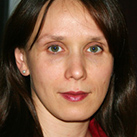
Dr Maximova received training in epidemiology at McGill University, specializing in primary prevention of chronic disease through research on improving key modifiable behaviors (physical activity, healthy eating, smoking, obesity). Her research interests include etiologic associations of lifestyle behaviors with chronic disease risk, misperception of risk, novel markers for chronic disease, public health systems capacity for chronic disease prevention, implementation of prevention policies to improve lifestyle behaviors and reduce chronic disease risk, social dimensions of health, and health outcomes in immigrant and refugee populations. She currently holds the Murphy Family Foundation Chair in Early Life Interventions and focuses on solutions to improve the early life experiences, development, and well-being of children and youth experiencing poverty. She previously held a Career Development Award in Prevention Research from the Canadian Cancer Society Research Institute to support her program of research focused on chronic disease prevention and implementation of effective interventions to support healthy behavior changes.
Appointment Term: 2019–2025
LaToya J. O’Neal, PhD, MS
Department of Family, Youth and Community Sciences
University of Florida
Institute of Food and Agricultural Sciences
Gainesville, Florida

Dr O’Neal, a medical sociologist, received her doctorate in medical sociology from the University of Alabama, Birmingham, and her master’s degree in counseling psychology from Assumption College, Worcester, Massachusetts. She specializes in community-based approaches to advance minority health and health equity. Her research examines social, cultural, and environmental determinants of population health. Her current research focuses on risk and protective factors related to the onset and progression of cardiometabolic comorbidities among diverse communities. Dr O’Neal serves as statewide leader in chronic disease prevention and management at the University of Florida Institute of Food and Agricultural Sciences Extension Service.
Appointment Term: 2022-2025
Tarang Parekh, PhD, MS, MBBS
Assistant Professor, Epidemiology
College of Health Sciences
University of Delaware
Newark, Delaware

Dr Tarang Parekh is an assistant professor in the Epidemiology Program in the College of Health Sciences at the University of Delaware. His research focuses on the social determinants of health, health disparities, and substance use issues, including marijuana and e-cigarette usage, as well as aging and disability research. Dr Parekh received his doctorate in Health Services Research from George Mason University. Previously, Dr Parekh has worked in medicine with Doctors Without Borders at the India/Myanmar border and as a medical officer for a tertiary care center in India. Dr Parekh also holds a master’s degree in health and medical policy from George Mason University. Before joining the Epidemiology Program at the University of Delaware, Dr Parekh completed his postdoctoral fellowship in the Center for Health Data Science and Analytics and the Department of Cardiology at Houston Methodist Hospital. His work has been published in several journals, including American Journal of Preventive Medicine, Preventing Chronic Disease, the Journal of General Internal Medicine, Disability and Health, Drug and Alcohol Dependence, Stroke, and the Annals of Epidemiology, among others.
Appointment Term: 2024-2027
Michael J. Parks, PhD
Epidemiology Program Manager
Epidemiology Research Branch
Division of Epidemiology, Services and Prevention Research
National Institute on Drug Abuse
National Institutes of Health

Dr Parks is an epidemiology program manager at the National Institute on Drug Abuse at the National Institutes of Health.
He does research and applied public health focused on adolescent and young adult health. His primary areas of concentration are in adolescent health, health promotion, evaluation research, quantitative methods, risk and protective factors, tobacco control, and health disparities. After completing his PhD at Penn State, Dr. Parks worked as a senior research scientist at the Minnesota Department of Health for 5 years. While at the Minnesota Department of Health, he conducted research on substance use, such as tobacco use, and implemented and evaluated population-based health promotion and prevention programs. In 2019 he completed a 2-year fellowship (T32) in adolescent health at the University of Minnesota’s Medical School in the Department of Pediatrics and Division of General Pediatrics & Adolescent Health. He was also previously a research associate at the Translational Research in Children’s Mental Health at the University of Minnesota, as well as a research scientist at the Butler Center for Research at the Hazelden Betty Ford Foundation.
Appointment Term: 2024-2027
Carolina Pérez Ferrer, PhD, MSc
Center for Research in Nutrition and Health
National Institute of Public Health
Cuernavaca, Morelos, México

Dr Pérez Ferrer is a research fellow in the Center for Research in Nutrition and Health at Mexico’s National Institute of Public Health. Her research focuses on the food environment, chronic disease inequities, urban health, and the evaluation of urban health policies, such as road safety legislation. She received a doctoral degree in epidemiology and public health from University College London and a Master of Science in Public Health: Health Promotion from the London School of Hygiene and Tropical Medicine. Dr Pérez Ferrer also serves as a voting member on the governing boards of two teaching hospitals in Mexico City.
Appointment Term: 2022–2025
Ramesh Poluru, PhD
Senior Program Officer
The INCLEN Trust International
New Delhi, India
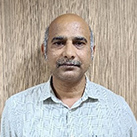
Dr Ramesh Poluru is the senior program officer with INCLEN Trust International, New Delhi, India. Dr. Poloru handles data management and analysis activities of INCLEN research studies. He completed his master’s and doctorate degrees in population studies from Sri Venkateswara University, Tirupati, India. His research interests and expertise span demography, statistics, epidemiology, vaccine safety, impact assessment, public health and surveillance in reproductiion, child health, and sexually transmitted infections, and HIV/AIDS. Dr Poluru has more than 2 decades of experience in conceptualization, implementation and monitoring of large scale socioeconomic, demographic, behavioral, biological, and operations research studies; analysis and interpretation of primary data and secondary data, using both qualitative and quantitative approaches. He has also extensively involved in the facility, community-based studies, operations research, and phases 3 and 4 clinical trials to deliver intervention services among general populations of infants, children, and women, to more specific and vulnerable populations, including high-risk groups, MSM, and truckers. He has served and continues to serve as a panel presenter and a scientific reviewer. Dr Poloru has reviewed over 40 journals and various international granting agencies for research grants, proposals, fellowships, and reports.
Appointment Term: 2024–2027
Austin Porter III, DrPH, MPH
Deputy Chief Science Officer, Arkansas Department of Health
Assistant Professor, Health Policy and Management
Fay W. Boozman College of Public Health
University of Arkansas for Medical Sciences
Little Rock, Arkansas

Dr Porter is an assistant professor in the Department of Health Policy and Management at the Fay W. Boozman College of Public Health, University of Arkansas for Medical Sciences. He also serves as the deputy chief science officer at the Arkansas Department of Health (ADH). He began his career in public health by serving as the injury epidemiologist for ADH, where he was involved in the development and evaluation of the Arkansas Trauma System. Dr Porter has more than 10 years of research experience and 8 years of experience in injury epidemiology. His research interests are in trauma/injury prevention, health policy evaluation, and health systems evaluation. He received an MPH and DrPH from the Fay W. Boozman College of Public Health, University of Arkansas for Medical Sciences.
Appointment Term: 2019–2025
Irene Prabhu Das, PhD, MPH
Health Scientist Administrator
Division of Scientific Programs
All of Us Research Program
Office of the Director
National Institutes of Health
Rockville, Maryland

Dr Prabhu Das is a health scientist administrator in the Division of Scientific Programs of the All of Us Research Program (AoURP), Office of the Director at the National Institutes of Health (NIH). She began her public health career as an epidemiologist in infectious disease surveillance in Los Angeles County and moved into cancer prevention and control research at the UCLA Jonsson Comprehensive Cancer Center after receiving an MPH at the University of California, Los Angeles. Dr Prabhu Das then served as director for the Division of Cancer Prevention and Control, the Breast and Cervical Cancer Early Detection Program, and the Comprehensive Cancer Control Program at the South Carolina Department of Health and Environmental Control. After obtaining a PhD from the University of South Carolina, she served as public health advisor and health scientist at the Office of Dissemination and Implementation and Healthcare Delivery Research Program in the Division of Cancer Control and Population Sciences at the National Cancer Institute, NIH, where her research activities included program evaluation and qualitative research.
Appointment Term: 2021–2025
Jessica M. Robbins, PhD
Public Health Epidemiologist/IRB Administrator
Philadelphia Department of Public Health
Philadelphia, Pennsylvania

Dr Robbins is a public health epidemiologist with the Philadelphia Department of Public Health (PDPH), Division of Ambulatory Health Services, and also serves as the administrator of the PDPH Institutional Review Board. She earned a PhD in chronic disease epidemiology from Yale University and had postdoctoral training at the University of Pennsylvania Population Studies Center. She has taught and supervised public health student projects at Drexel University, Temple University, and Thomas Jefferson University. Dr Robbins has carried out NIDDK-funded research on outcomes for diabetic patients of the Philadelphia Health Centers and Centers for Disease Control and Prevention-funded research on childhood obesity in school children. Her research interests are in health disparities, social determinants of health, and the role of community health centers.
Appointment Term: 2020–2026
Michelle Rogers, PhD
Assistant Professor (Research)
Department of Behavioral and Social Sciences
Brown University
School of Public Health
Providence, Rhode Island

Dr Michelle Rogers is an assistant professor (research) at Brown University’s School of Public Health and is the Associate Director of the school’s Survey Research Center. Her research interests focus on child and adolescent health and well-being, chronic health conditions, and social determinants of health. She has extensive experience in advanced quantitative data analysis and complex data management. She received her master’s and doctorate degrees in sociology with a concentration in demography from Brown University.
Appointment Term: 2024–2027
Richard Casey Sadler, PhD, MPH
Division of Public Health
College of Human Medicine
Michigan State University
Flint, Michigan

Dr Sadler earned his PhD from the University of Western Ontario in London, Ontario, and his MPH from the Johns Hopkins Bloomberg School of Public Health in Baltimore, Maryland. His public health research interests cover a broad spectrum, including the built environment and health, structural racism and health equity, local food policy and food systems, and drug and alcohol abuse. He also works with the application of geographic information science in public health systems. Dr Sadler serves as an independent GIS and technical consultant to the City of Flint Planning Department, the Genesee County Health Department in their Racial and Ethnic Approaches to Community Health Across the Nation Consortium, the City of Flint Master Plan Food Systems Component, and the Flint Farmers’ Market.
Appointment Term: 2022–2025
Lia Scott, PhD
Assistant Professor
Division of Epidemiology
University of California, Berkeley, School of Public Health
Berkeley, California

Dr Scott is an assistant professor of epidemiology at UC Berkeley, School of Public Health. Her primary research interests include using spatial epidemiologic methods and advanced statistical modeling to examine the impact of structural and social factors on the etiologic heterogeneity of breast cancer, with an overarching goal of examining the role of race and place in disparate outcomes. She completed her postdoctoral training as a Steven M. Teutsch Prevention Effectiveness fellow at the Centers for Disease Control and Prevention and received her doctorate and master of public health degree from Georgia State University, where she was an National Institutes of Health Ruth L. Kirschstein National Research Service Award fellow.
Appointment Term: 2023–2026
Jayme Steig, PharmD, RPh
Assistant Professor of Practice
Department of Pharmacy Practice
North Dakota State University
Fargo, North Dakota

Dr Steig is an assistant professor of practice in the Department of Pharmacy Practice at North Dakota State University. He also is a scientist in the Center for Collaboration and Advancement in Pharmacy at North Dakota State University. He has experience in quality improvement, medication safety, and care coordination. His interests include reducing risk of opioid misuse and overdose and utilization of community pharmacy to improve chronic disease outcomes.
Appointment Term: 2023-2026
Menghua Tao, PhD
Assistant Scientist Department of Public Health Science
Henry Ford Health System
Assistant Professor-Research
Department of Epidemiology and Biostatistics
College of Human Medicine
Michigan State University
Detroit, Michigan

Dr Menghua Tao is an accomplished researcher in epidemiology in relation to chronic disease among different populations. She is an assistant scientist in the Department of Public Health Science at the Henry Ford Health System, as well as an assistant professor of Research in the Department of Epidemiology and Biostatistics at Michigan State University. She obtained her medical degree from Shanghai Medical University and her doctorate degree in epidemiology from the University of California at Los Angeles. Dr Tao’s research interests include investigating complex interactions between environmental factors, such as nutrition and epigenomics, as well as nutrient-to-nutrient interactions in relation to cancer development and progression. Her other research interests include health disparities and nutritional factors in relation to metabolic diseases.
Appointment Term: 2024–2027
Mikiko Terashima, PhD, MSc
School of Planning
Healthy Populations Institute
Department of Community Health and Epidemiology
Dalhousie University
Halifax, Nova Scotia, Canada

Dr Terashima’s research focuses on methods of measuring various social and built environmental forces that create systematic inequalities in health and well-being among different groups of people across communities. Her research investigates spatial accessibility to a multitude of services and amenities such as food outlets, green space, and primary health services, and their collective influences in health and well-being. Dr Terashima received a PhD from Dalhousie University, an MSc from the University of British Columbia, and a BSc from Michigan State University.
Appointment Term: 2018–2025
Tung-Sung Tseng, PhD, MPH
Associate Professor
Behavioral and Community Health Sciences Department
School of Public Health
Louisiana State University Health Sciences Center
New Orleans, Louisiana

Dr Tseng is associate professor in behavioral and community health sciences at the School of Public Health, Louisiana State University (LSU) Health Sciences Center in New Orleans. Dr Tseng is a Certified Health Education Specialist/Master Certified Health Education Specialist and co-chairs the Ethics Committee of the Society for Public Health Education. He is a senior behavioral scientist and lead evaluator of the Tobacco Control Initiative, a multidisciplinary program that specializes in helping tobacco users quit, in part by offering free or low-cost tobacco treatment services to all Louisiana public hospital patients and employees and the communities that the hospitals serve. He also serves as a member of Design and Analysis Core, Health Care Effectiveness, LSU Health Care Services Division and Stanley S. Scott Cancer Center. His primary research interests include tobacco control, childhood obesity, gene–environment interaction, risk behavioral patterns, health promotion interventions and evaluations, health disparities, and cancer prevention among racial and ethnic minority and underserved populations. He has a doctorate in community health and a master’s degree in health policy and health behavior from the Institute of Health Policy at National Taiwan University.
Appointment Term: 2020–2025
Sara Turbow, MD, MPH
Associate Professor of Medicine
Program Director
Public Health and General Preventive Medicine
Residency and Fellowship Program
Department of Family and Preventive Medicine
Emory University School of Medicine
Atlanta, Georgia

Dr Sara Turbow is a health services researcher focused on chronic disease, care fragmentation, health disparities, and health information technology in vulnerable populations, particularly older adults with cognitive impairment. She completed her medical degree at Emory University School of Medicine and her master’s in public health degree, with a focus on epidemiology, at Emory University’s Rollins School of Public Health. She then completed training in internal medicine and primary care at Emory University. She joined the faculty of the Division of General Internal Medicine at Grady Memorial Hospital, Emory University School of Medicine upon completion of her residency in 2015. In 2020, she completed training in public health and general preventive medicine, also at Emory and joined the Preventive Medicine Residency Leadership Program as an associate program director immediately thereafter. Dr Turbow has served as Program Director of Emory’s Public Health and General Preventive Medicine Residency and Fellowship program since Fall 2023.
Appointment Term: 2024–2027
Kristina Vatcheva, PhD, MS
Associate Professor
School of Mathematical and Statistical Sciences
University of Texas Rio Grande Valley
Edinburg, Texas

Dr Vatcheva is an assistant professor in the School of Mathematical and Statistical Sciences at the University of Texas Rio Grande Valley. Her research interest is in biostatistical methods applied in epidemiologic and medical research. Dr Vatcheva’s research focus is on statistical modeling to evaluate the contribution of biomarkers and sociodemographic factors to high prevalence of metabolic syndrome, obesity, diabetes, cardiovascular disease, fatty liver diseases, anxiety, depression, and cognitive decline that disproportionately burden the communities of Rio Grande Valley. Dr Vatcheva has a master of science degree in mathematics from the Sofia University St. Kliment Ohridski, Bulgaria, and a doctorate in epidemiology, with a concentration in biostatistics, from the University of Texas Health Science Center at Houston School of Public Health.
Appointment Term: 2023–2026
Camille Vaughan, MD, MS
Associate Section Chief for Research in Geriatrics and Gerontology
Emory University School of Medicine
Atlanta, Georgia

Dr Vaughan is a geriatrician and associate section chief for research in geriatrics and gerontology at Emory University. Dr Vaughan also serves as Atlanta site director for clinical programs in the Birmingham/Atlanta Geriatric Research Education and Clinical Center at the Atlanta VA Medical Center. Dr Vaughan’s research focuses on optimizing the care of adults with multiple chronic conditions. She has expertise in the study of lower urinary tract symptoms among older adults, including those living with Parkinson’s disease. She joined the Preventing Chronic Disease editorial team in October 2013. She received an MD degree and an MS degree in clinical research at Emory University.
Appointment Term: 2020–2025
Neng Wan, PhD, MS
Department of Geography
University of Utah
Salt Lake City, Utah

Dr Wan received a PhD in geographic information science at Texas State University-San Marcos, and an MS in Cartography and Geographic Information Systems at Wuhan University, China. His research focus in on the application of GIS, spatial modeling, and quantitative methods to the study of aging, tobacco control, physical activity, health disparities, health care access, and environmental exposures. Dr Wan is also director of the Utah Geo-Health Lab in the Department of Geography at the University of Utah.
Appointment Term: 2022–2025
Arica White, PhD, MPH
Coverage and Analysis Group, Division of Policy and Evidence Review
Center for Clinical Standards and Quality
Centers for Medicare and Medicaid Services
Atlanta, Georgia

Dr White is an epidemiologist in the Center for Clinical Standards and Quality at the Centers for Medicare and Medicaid Services (CMS). Previously, she led research on understanding and reducing cancer health disparities at the Centers for Disease Control and Prevention (CDC). Dr White completed her undergraduate education at Johns Hopkins University and received a Master of Public Health degree in health policy from the University of Michigan, Ann Arbor, and a Doctor of Philosophy degree in epidemiology from the University of Texas School of Public Health, where she was a predoctoral fellow in a program funded by the National Cancer. She is also an alumna of the CDC’s Epidemic Intelligence Service.
Appointment Term: 2022–2025
Eun-Hye Enki Yoo, PhD
Associate Professor
Department of Geography
University at Buffalo
Buffalo, New York

Dr Yoo is a GIScientist with expertise in spatial statistics and its application to environmental science and public health. Her primary research focuses on spatial scale issues and error/uncertainty in geographic data, environmental exposure modeling and health risk assessment, and the impact of human mobility on health. Dr Yoo received a doctorate in Geography from the University of California, Santa Barbara.
Appointment Term: 2022–2026
Korede Yusuf, PhD, MBBS, MPH
Assistant Professor
Adelphi University College of Nursing and Public Health
Garden City, New York

Dr Yusuf is an assistant professor at the Adelphi University College of Nursing and Public Health. She has 15 years of combined experience in clinical practice and public health research. Her interests include health disparities and perinatal and reproductive health. Her current research focuses on maternal determinants of feto-infant health.
Appointment Term: 2019–2025
Guixiang (Grace) Zhao, MD, PhD
Health Scientist
Division of Population Health
National Center for Chronic Disease Prevention and Health Promotion
Centers for Disease Control and Prevention
Atlanta, Georgia

Dr Zhao has more than 15 years of experience working in chronic disease epidemiology at the CDC. She has extensive research experience in the areas of nutritional clinical trials, multiple cardiovascular diseases risk factors (ie, hypertension, diabetes, obesity, lipids/lipoproteins, and proinflammatory markers), health-related behavioral risk factors, health care access and preventive services use, and mental health. She also conducted research in molecular biology exploring molecular regulation in metabolic diseases. Dr Zhao earned her PhD in Nutritional Sciences from the Pennsylvania State University and her MD and MPH from Peking University Medical Center, China.
Appointment Term: 2022–2026
Top
The opinions expressed by authors contributing to this journal do not necessarily reflect the opinions of the U.S. Department of Health and Human Services, the Public Health Service, the Centers for Disease Control and Prevention, or the authors’ affiliated institutions.

